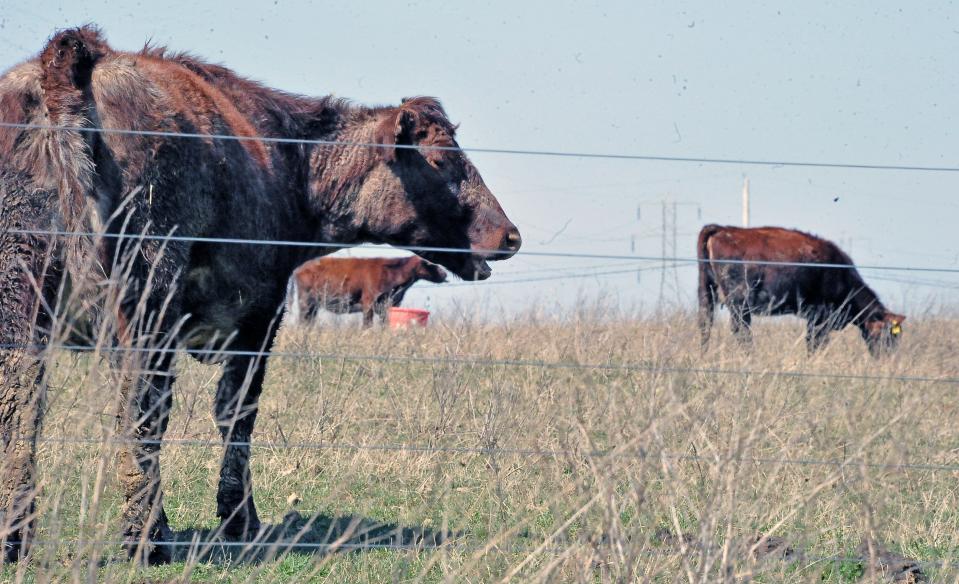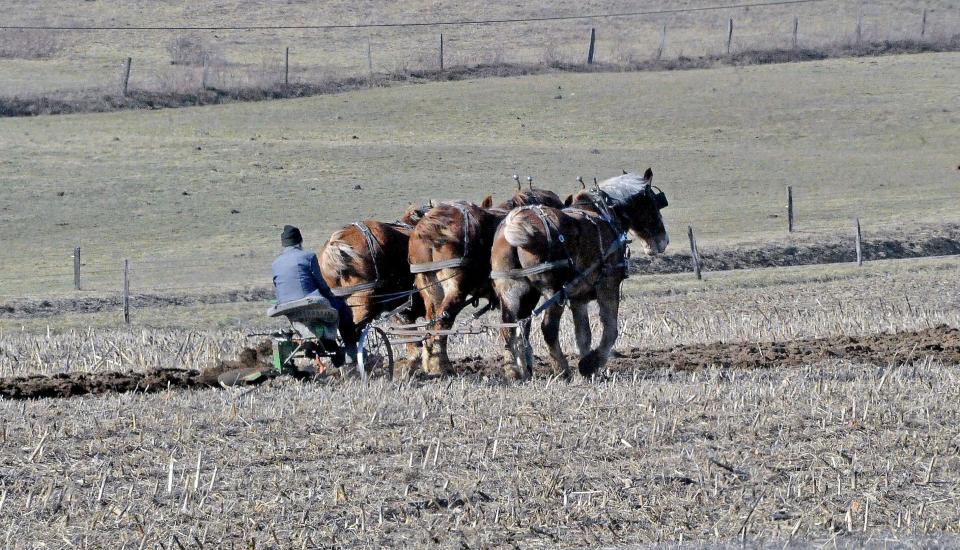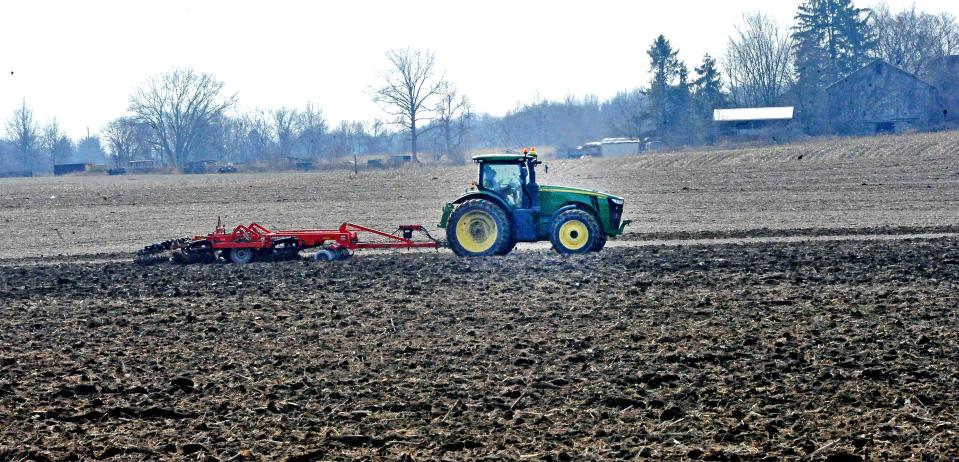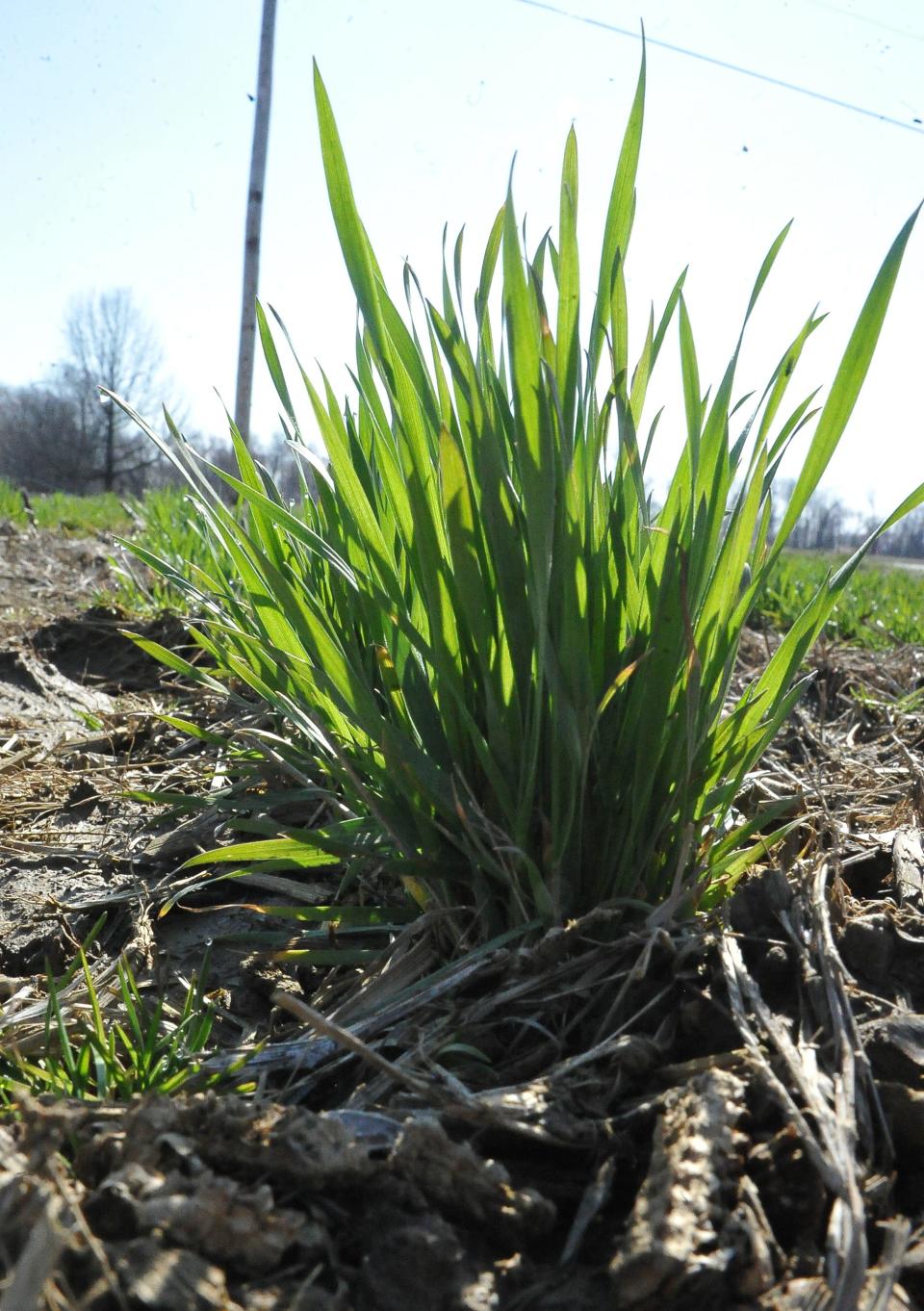Protecting the future of farming in Wayne County, one connection at a time

WOOSTER − An ongoing initiative kicked off its 2023 program in early March to better protect the future of farming in Wayne County,
Led by the Agriculture Success Team and Pathways to Prosperity, over 100 people gathered for a meeting at the Buckeye Agricultural Museum to learn more about a project called Wayne Onward.
The project aims to connect the various agriculture communities and provide solutions to the endemic problems farmers face, said Jessica Eikleberry, a member of the project.
Farm-tastic! Wayne County part of unique agriculture-bolstering project
"I grew up in Wayne County and knew people who had chickens or had farms, but I never thought about how I could help protect that land as not a farmer," Eikleberry said.
For those like her who do not farm, this program is about supporting the agricultural community and individuals facing issues like troubling finances, little access to decent health care and insurance-related problems.
If successful, Eikleberry said, the program would empower small- to medium-sized farms in a world of shrinking farmland.
A program of collaboration

Pathways to Prosperity came to Wayne County in 2020 when it was funded with a three-year $500,000 grant from the USDA National Institute of Food and Agriculture.
It aims to answer how rural communities can collaborate to solve food and agriculture issues while promoting economic growth.
4-H: Summer's a comin', and that means 4-H camp in Wayne County
The program works with multiple community organizations like the Wayne County Farm Bureau, Local Roots, FoodSphere, Amish and Plain Partners, the OSU Wayne County Extension and the OSU agriculture campus.
In 2020, it teamed up with the Agriculture Success Team, Eikleberry said.
Founded in the early 2000s, she said, it acts like a networking group for local leaders and farmers to address a variety of problems the farms face.
With the help of Pathways to Prosperity, Eikleberry said, the team has renewed energy to help Wayne County farmers.
This energy will be focused on education, fundraising and public advocacy.
Education and advocacy can help raise awareness in local communities and help legislators prioritize farmland preservation and legislation that would help finance agriculture.
It can also teach the younger generations how important farming is, Eikleberry said.
"Without those younger generations, farmland and local agriculture begin to disappear," she said.
Advocacy can take the form of promoting better land use policies and urging better economic support.
Connecting farming communities

To accomplish this education and advocacy, Eikleberry said, the program must reach out to the various Wayne County farming communities with the hope of creating a network connecting the roughly 1,750 farms in the county.
To do this, individuals from both the Pathways and the Success Team break into teams and appoint an ambassador to a specific community, Eikleberry said.
"We're looking for answers by working together," she said. "To do that, we need to bring everyone together."
For Wayne Onward to work, that means connecting with all types of small and medium farms, Amish communities, villages, county commissioners and others.
Brainstorming solutions

At the March meeting, many problems were outlined. Among the top issues farmers face is money.
For local family-owned farms, paying many employees decent wages can be difficult, said Shoshanah Inwood, a researcher with Pathways to Prosperity.
"Being a farmer means being self-employed, and the benefits like health insurance can be hard to obtain," she said at the meeting. "No one does this to get rich."
Some banks like the Farm Bureau Credit Union can provide economic support, but there is a need for collective health care, explained one participant at the event.
This financial block can act as a deterrent for the younger generations, Eikleberry explained after the event.
Another problem farmers face is the lack of a succeeding generation.
"Often owners will get to a certain age and can't pass the farm on, so they sell the land to a developer," she explained.
Data from the American Farmland Trust shows that nearly 54% of English-speaking farmers and 38% of Amish farmers reported their children cannot afford to take over the family farm.
Educating the younger generations and exposing them to the realities of farming is one way to help the situation, she said.
Another could be the establishment of an agriculture land bank that regulates the control of farmland, keeping it in the hands of small farmers, Eikleberry explained.
While Wayne Onward is still getting off the ground, she said, brainstorming community-oriented solutions and starting conversations are among the first steps toward improving the quality of life for farmers.
This article originally appeared on The Daily Record: How Wayne County is working to protect the future of farming
